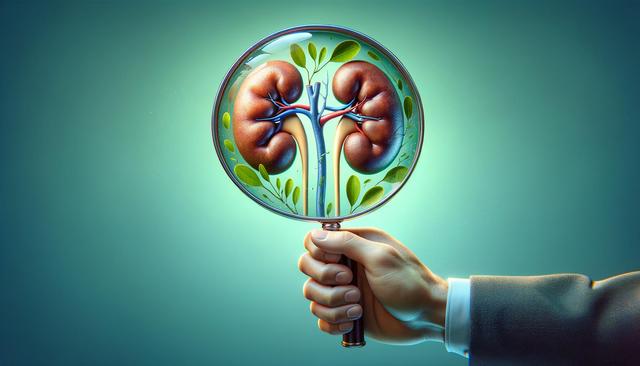Recognizing the Subtle Signs of Kidney Trouble
Kidney disease often develops silently, with early symptoms being mild or easily mistaken for other conditions. This makes it especially important to recognize the early warning signs that may indicate a decline in kidney health. Fatigue, for instance, is one of the most commonly overlooked symptoms. As kidney function decreases, waste builds up in the blood, leading to tiredness and a general feeling of being unwell. Swelling in the ankles, feet, or hands can also signal fluid retention caused by impaired kidney function.
Other early signs may include:
- Changes in urination patterns (frequency, color, or amount)
- Persistent itching due to waste buildup in the bloodstream
- Shortness of breath, especially if fluid accumulates in the lungs
- Metallic taste in the mouth or bad breath
While these symptoms can have various causes, experiencing several simultaneously should prompt a visit to a healthcare provider for further evaluation. Being proactive at this stage may help slow the progression of chronic kidney disease.
The Link Between Underlying Conditions and Kidney Health
Chronic conditions such as diabetes and high blood pressure are major contributors to kidney disease. When these conditions are poorly controlled, they place additional stress on the kidneys over time. In particular, individuals managing a diet for diabetes, high blood pressure, and kidney disease must be especially vigilant. The overlap between these conditions means that dietary and lifestyle choices can have a significant impact on kidney function.
For those at risk, regular monitoring of blood sugar and blood pressure levels can be essential. Dietary adjustments that include low-sodium, low-sugar, and kidney-friendly foods are beneficial. These might include:
- Fresh fruits and vegetables with low potassium
- Whole grains in moderation
- Lean proteins such as poultry and fish
- Plenty of water, depending on individual fluid needs
Understanding how these underlying conditions interact with kidney function can empower individuals to make informed decisions that support long-term health.
Stage 4 Kidney Disease: What You Need to Know
By Stage 4, kidney function has declined significantly, typically to 15–29% capacity. At this point, symptoms are more pronounced and may include nausea, muscle cramps, and difficulty concentrating. It’s a critical stage where preparation for potential treatments becomes necessary, including evaluating alternatives to dialysis. While dialysis is a common intervention, it’s not the only path available. Depending on the individual’s overall health, age, and lifestyle, other options may include conservative management or preemptive kidney transplantation.
For individuals exploring options in this stage, consultation with a nephrologist is crucial. This helps to assess:
- Rate of kidney function decline
- Potential for transplantation
- Suitability for conservative care without dialysis
Supporting kidney health at this stage also involves focusing on what to drink to keep kidneys healthy. Hydration is vital, but so is the type of fluid consumed. Avoiding sugary drinks, excessive caffeine, and high-phosphorus beverages can help reduce the burden on the kidneys.
Healthy Hydration and the Role of Fluids in Kidney Function
Staying hydrated is essential for kidney health, but not all drinks are equally beneficial. Understanding what is the best thing to drink for your kidneys can help individuals make smarter choices. Water remains the most universally recommended drink for kidney health, as it helps flush toxins and supports overall function. However, other options can also be helpful when consumed in moderation and as part of a balanced diet.
Drinks that are generally supportive of kidney health include:
- Herbal teas (without added sugar)
- Low-sodium vegetable juices
- Cranberry juice (unsweetened and in moderation)
- Lemon water, which may help prevent kidney stones in some individuals
It’s important to consult with a healthcare provider before making significant changes to fluid intake, especially for individuals with advanced kidney disease. Overhydration or inadequate fluid intake can both pose risks, especially when kidney function is compromised.
Taking Control Through Diet and Monitoring
Diet plays a vital role in managing kidney disease, particularly in those also coping with diabetes or high blood pressure. A carefully planned diet for diabetes, high blood pressure, and kidney disease can help slow disease progression and improve overall well-being. Reducing sodium, phosphorus, and protein intake may be recommended, depending on the individual’s stage of CKD and other health conditions.
Practical steps to manage kidney health through diet include:
- Reading food labels to monitor sodium and sugar content
- Choosing fresh foods over processed items
- Balancing nutrient intake with guidance from a renal dietitian
Regular lab tests to monitor creatinine, glomerular filtration rate (GFR), and electrolyte levels are also important. Early detection of imbalances allows for timely intervention and adjustment of treatment plans. For those in Stage 4, this monitoring becomes even more critical in deciding when or if to begin dialysis or consider other treatment paths.
Conclusion: Staying Informed and Proactive
Recognizing the early warning signs of kidney disease and understanding the implications of Stage 4 CKD can make a significant difference in managing the condition. By staying informed about symptoms, maintaining proper hydration, and following a targeted diet, individuals can take meaningful steps toward preserving kidney function. Whether exploring alternatives to dialysis or simply seeking to improve daily habits, proactive care and regular medical guidance are key to navigating kidney disease with confidence and clarity.




Leave a Reply